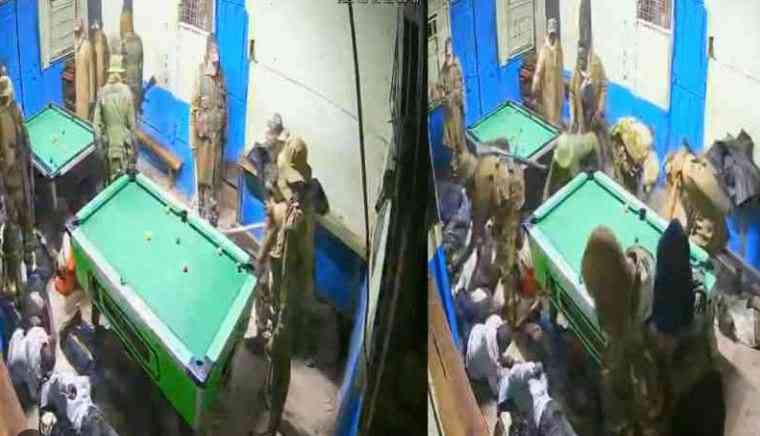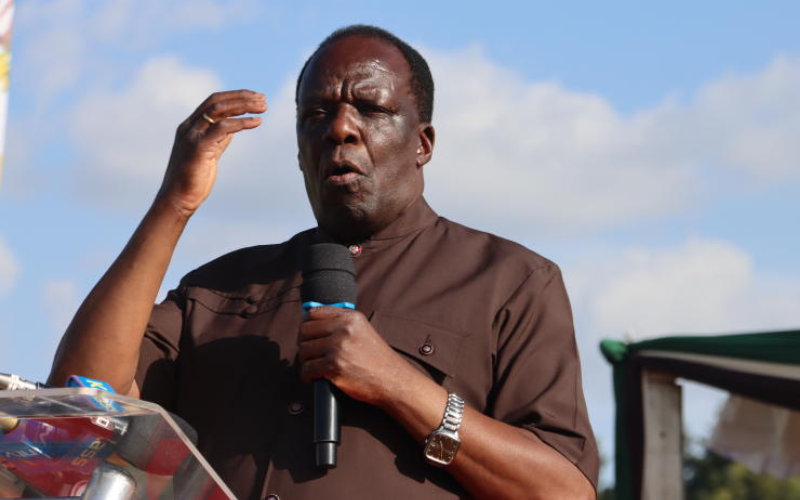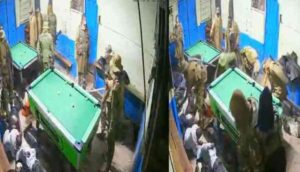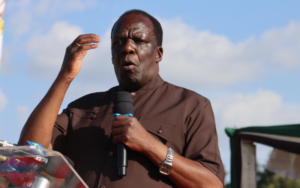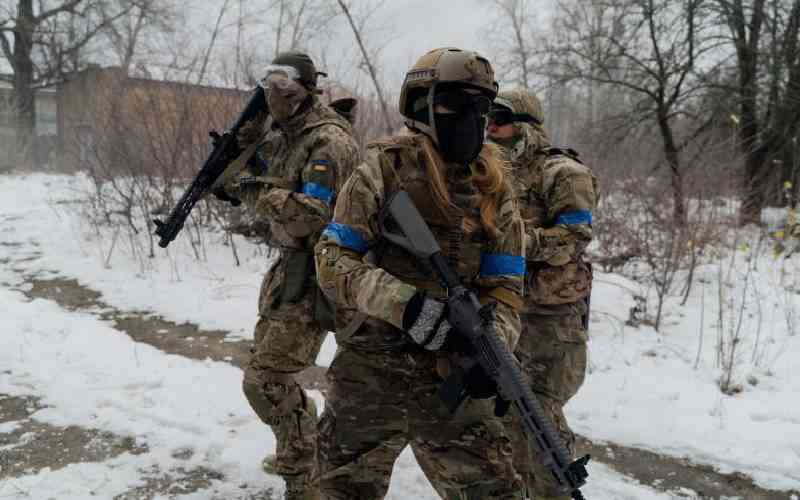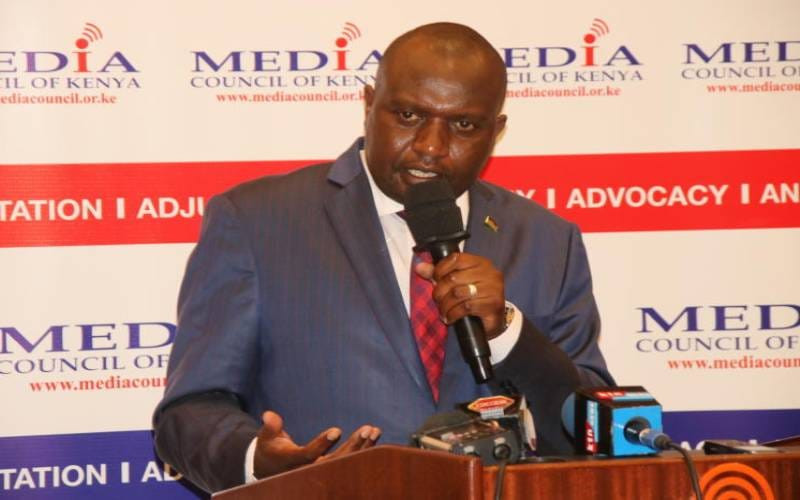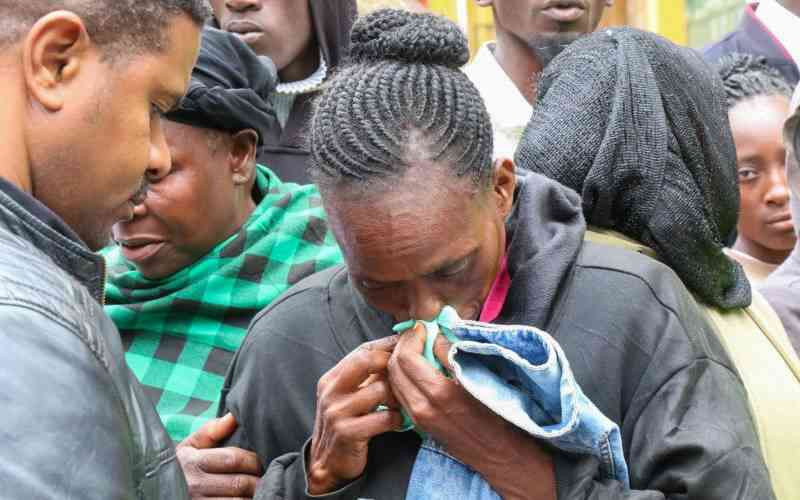Last week’s action by the government to deregister over 600 foreign job agencies came after Kenyan families expressed fears over their loved ones trapped in Russia’s war against Ukraine.
Government officials have, however, remained reluctant to comment on labour migration issues involving Russia and other Eastern European countries, choosing instead to respond only to cases affecting Kenyans who end up in the West—Canada, Germany, and the Middle East, particularly Qatar.
As the government remains silent, Labour Cabinet Secretary Alfred Mutua said he was unaware that job-seeking Kenyans had been lured through false promises of employment in Russia and sent to the war front. However, The Standard earlier in the week accessed government reports on Kenyan citizens on the frontline in Russia. The young men, now fighting in a war that is not their own, have contacted Kenya’s mission in Moscow seeking help to return home.
We confirmed that nearly a hundred Kenyans are awaiting assistance to return home, but sources familiar with the networks that traffic Kenyan citizens to Russia say the number could be higher.
One of the returnees, who asked us to protect his identity and will therefore be referred to as Javan, told us the problem is being fuelled by employment agencies such as Global Space—the one that lured him and dozens of others to Russia. The agency is run by an individual who identified himself only as Festus. It is not immediately clear whether last week’s deregistration of agencies by Mutua’s ministry has halted its criminal activities in the country.
“When we were introduced to Global Space in May, it was based on the 11th floor of Chai House,” said our source. “That was the office that brought us together, and by the time we were flying out in July, our WhatsApp group alone had 80 members. We all went together. Others had already left earlier, and more followed later. So now Russia has hundreds of young men.”
While reports about young Kenyan men on the war front are more recent, The Standard has previously revealed several cases in which young Kenyan women were lured by online job agencies with promises of hospitality jobs but ended up in slave-like conditions in war factories in Russia’s autonomous Republic of Tatarstan—1,000 kilometers southeast of Moscow.
A week after the Foreign Office acknowledged reports of Kenyans being lured to serve on the war front, Dr Mutua, who has been running a “jobs abroad” campaign in the country, told The Standard that those who found themselves on the war frontline were victims of conmen deceiving job-seeking Kenyans. He said they had no connection to the official campaign he is conducting across the country.
“That is the work of crooks, and I urge Kenyans to be careful when they are promised jobs abroad. The government cannot get you a job outside the country and give you a tourist visa for travel. You must be suspicious when you see such an arrangement,” said Mutua. “We issue an employment visa to a Kenyan only after securing them a job in a particular country.”
Mutua denied published reports attributed to him that claimed he had promised jobs in Russia to youths in Machakos if they voted for a Maendeleo Chap Chap candidate for the Mumbuni North Ward by-election on November 27.
“I did not give such a promise,” Mutua said. “That was the work of the Wiper Party. All jobs that we organize for Kenyans outside the country, including Russia, are done above board. The body that licenses employment agencies in the country is the National Employment Authority under my ministry, and all licensed agencies are listed on its website. We are above board.”
On September 26, while campaigning for a candidate running on the ticket of the party he founded, Mutua was quoted by a blogger (Education) as promising jobs to youths. Speaking at Kisooni Grounds during the unveiling of the candidate, he said he was concerned about the state of joblessness among the youth and would work with local leaders to enlist them for jobs in Russia.
“You know that I am in the Ministry of Labour, with the duty of securing employment for our people. I have seen some women here whose children I helped get jobs in Russia. Elect Wambua so that we can work together to secure jobs for our youths in Russia,” Mutua said.
Before The Standard broke the story of Kenyans being lured to the war front in January, we had published an earlier story about Russia’s special economic zone under a programme called Alabuga Start. We reported that, through online advertisements, unscrupulous networks had recruited more than 14 young Kenyan women into war factories in Russia.
Stay informed. Subscribe to our newsletter
The Associated Press, through an investigative report, revealed the extent of the slave-like conditions trapping young women from Africa and other developing regions. The Alabuga Start program launched a media campaign to clean up its image after Ukraine struck its nerve center in April last year. The facility was hit by a Ukrainian drone, destroying structures and injuring several people, according to an October 2024 Associated Press investigative report.
In a series of interviews with recruits sharing their testimonies, as well as information about the support Alabuga SEZ is receiving from Africa, the entity attempted to cleanse its image from allegations of operating a slave-labour system. Through lofty promises of training and jobs in Russia, it spread propaganda about the supposed benefits of its project and its partnerships—mostly with countries from the Global South.
In one of the videos shared on the Alabuga website, a Kenyan woman named Macrene Achieng said:
“I came to work and study at Alabuga Polytech in the field of Service and Hospitality, and I am going to work in Shokoladnitsa. I am fine now.”
Speaking in flawless English, she added:
“Those who attacked our hostel today are real barbarians and deserve serious condemnation. In my opinion, they wanted to intimidate us, but they did not succeed. You won’t scare me, because Alabuga is a strong place and we will get through this.”
Achieng insisted that no one would scare her.
“I am not aware of anything called Alabuga Start,” Mutua told The Standard. “What we have with Russia is 400 Kenyan professionals working in competitive professional jobs. As I said, if anyone got a job through online adverts, they may have fallen victim to crooks.”
The BBC, in a recent investigative report titled “My Skin Was Peeling – The African Women Tricked into Making Russian Drones,” reported the case of a Sudanese woman who was lured into a slave-like job under the Alabuga Start program through promises of hospitality work.
“We got our uniforms, not even knowing exactly what we were going to do. From the first day of work, we were taken to the drone factory. We stepped in and saw drones everywhere and people working. Then they took us to our different workstations.”
The 23-year-old woman, originally from South Sudan and identified by the BBC as Adau to protect her identity, said she was lured to the Alabuga Special Economic Zone in Tatarstan, Russia, with the promise of a full-time job.
She had applied to the Alabuga Start programme—a recruitment scheme targeting 18-to-22-year-old women, mostly from Africa but increasingly from Latin America and Southeast Asia. It promised participants professional training in areas such as logistics, catering, and hospitality.
However, the programme has been accused of using deception in its recruitment practices and of forcing young recruits to work in dangerous conditions for less pay than advertised. It denies all allegations but has not disputed claims that some employees were helping to build drones.
By some estimates, more than 1,000 women have been recruited from across Africa to work in Alabuga’s weapons factories. In August, the South African government launched an investigation and warned its citizens not to sign up, according to the BBC report.





